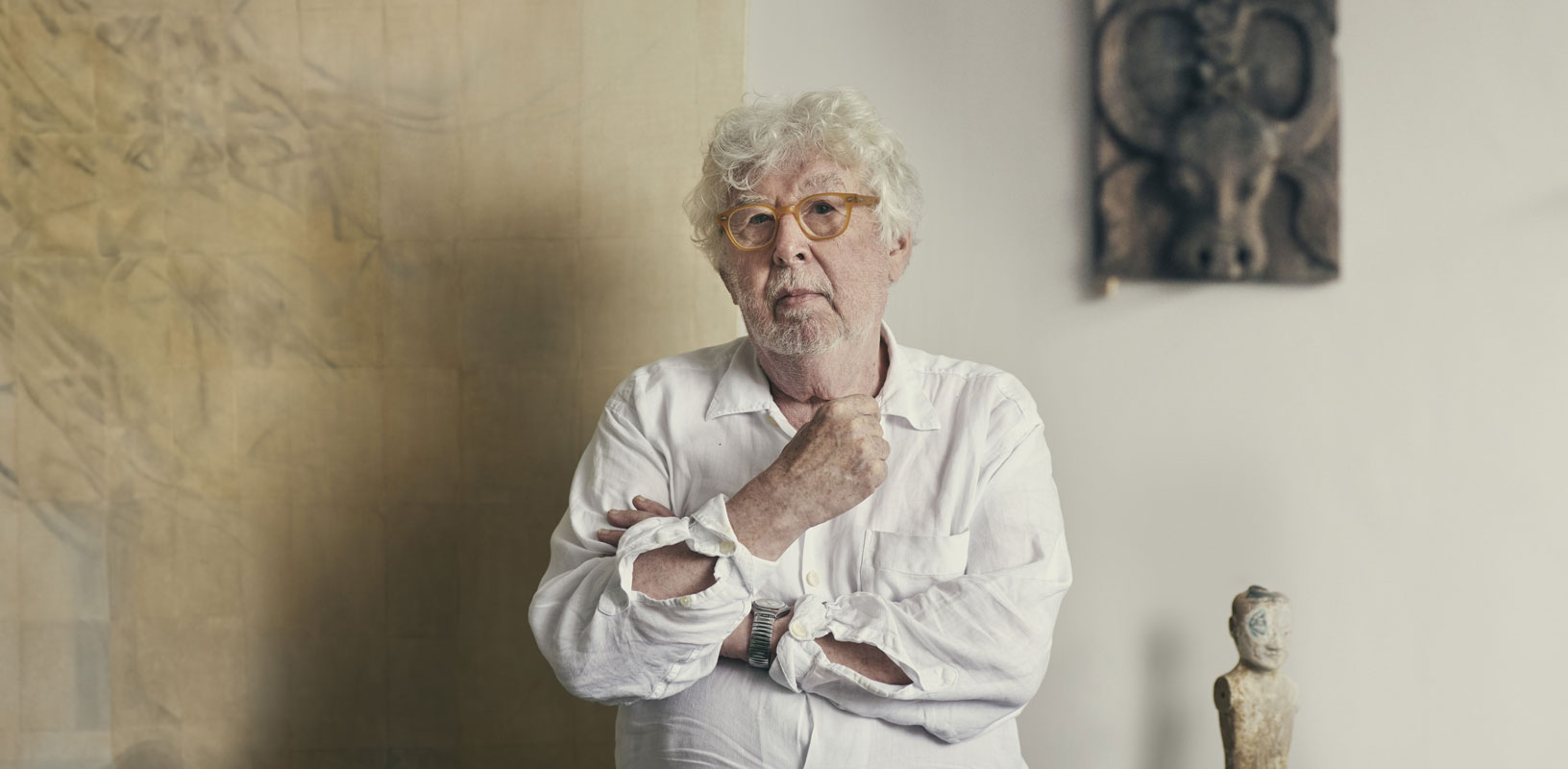Birtwistle’s Deep Time: from Berlin to the BBC Proms

Harrison Birtwistle’s new orchestral work, Deep Time, was premiered in Berlin under the baton of Daniel Barenboim on 5 June and travels to the BBC Proms on 16 July.
Daniel Barenboim was on the rostrum at the Berlin Phiharmonie for the world premiere of Harrison Birtwistle’s Deep Time on 5 June, with a second performance the following day at the Berlin Konzerthaus. The conductor brings his Staatskapelle to the BBC Proms on 16 July for the work’s UK premiere at the Royal Albert Hall, with the concert telecast on BBC4 TV and broadcast on BBC Radio 3.
Birtwistle’s 23-minute work resonates with temporal and seismic themes in a metaphorical rather than a literal sense, the composer drawing parallels to the concept of perpetual geological change and the immense spans of deep time embedded in the earth. He refers to the idea of strata of material being blown apart by seismic activity so that rocks of vastly different ages can be viewed adjacent at the present point of time, as he observed when living on the Scottish island of Raasay which sits astride a geological fault line. The new work’s concern with time can see it placed as the third piece in a Birtwistle orchestral triptych following The Triumph of Time and Earth Dances.
> Read an interview with the composer about Deep Time
Daniel Barenboim’s championing of Birtwistle’s music has included the premiere of Exody with the Chicago Symphony Orchestra in 1998, the premiere staging of The Last Supper at the Berlin Staatsoper in 2000, and performances of The Triumph of Time.
"… the earth quakes in the Philharmonie during the course of this premiere when the low winds, brass and strings of the Staatskapelle create powerful primal sounds urged on by Daniel Barenboim. Musical layers of rock grate against each other, interrupted by violent percussion outbursts and shrill wind sounds – magma and scree, hurled musically into the air.
"Birtwistle was inspired to compose this magnificent avant-garde orchestral geology by the Scottish geologist James Hutton, by the idea that "we find no vestige of a beginning, no prospect of an end" in the rocks of this earth, only a state of constant alteration. Deep Time ends with a great percussion finale. The four percussionists received a tremendous ovation for this, but louder still was when Daniel Barenboim invited the 82-year-old composer onto the stage."
Der Tagesspiegel
"…musical objects transform and collide, often with seismic power. Nestled among this harsh landscape are moments of lucidity and transparency that stick out like diamonds: lyrical string melodies and mellifluous soprano saxophone. The Staatskapelle brought clarity and technical mastery to Birtwistle’s complex and layered music."
Bachtrack
This month also brought the first UK performances of Birtwistle’s dear dusty moth, a setting of poetry by Robin Blaser for soprano and chamber ensemble, by Claire Booth and the Birmingham Contemporary Music Group at the CBSO Centre and at the Aldeburgh Festival. The programme was broadcast on BBC Radio 3's Hear and Now and is currently available on the BBC Radio Player:
http://www.bbc.co.uk/programmes/b08vy6jb
The composer’s chamber music is featured at the Plush Festival in Dorset this summer, including The Axe Manual on 15 July. Selections from Birtwistle’s 26 Orpheus Elegies are heard in the coming months in Plush, the Tanglewood Festival and at the Berlin Philharmonie. The composer’s Violin Concerto is featured in Simon Rattle’s opening programme as Musical Director of the London Symphony Orchestra at the Barbican in London on 14 September with soloist Christian Tetzlaff.
> Weitere Informationen zum Werk: Deep Time
Photo: Philip Gatward
